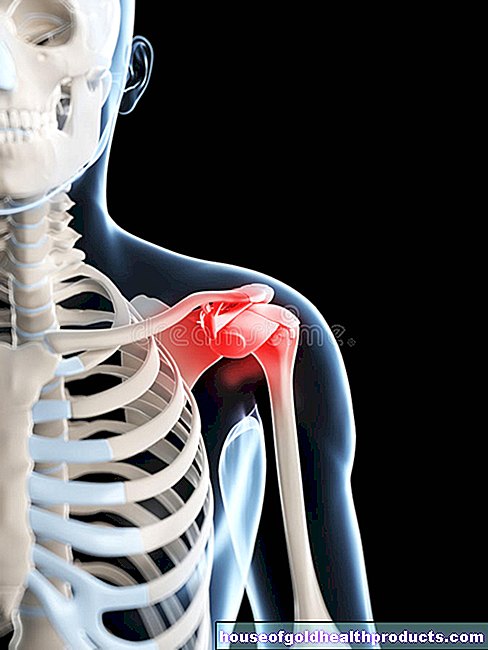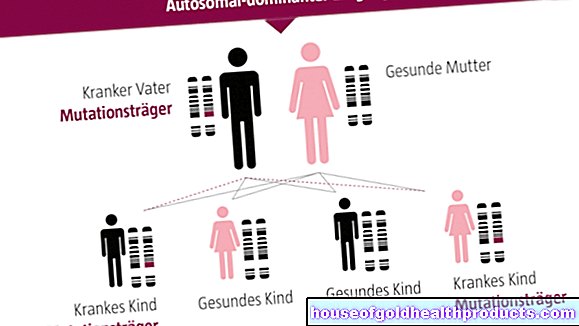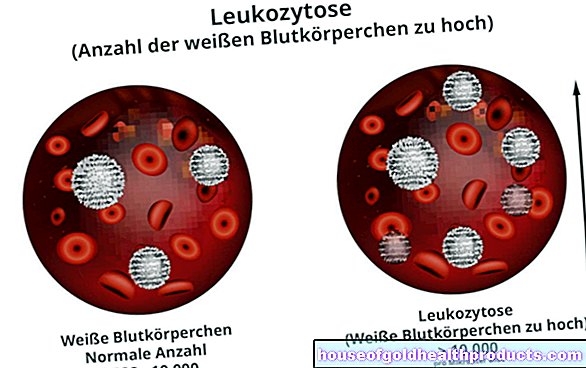Heart failure: beta blockers cure heart genes
Christiane Fux studied journalism and psychology in Hamburg. The experienced medical editor has been writing magazine articles, news and factual texts on all conceivable health topics since 2001. In addition to her work for, Christiane Fux is also active in prose. Her first crime novel was published in 2012, and she also writes, designs and publishes her own crime plays.
More posts by Christiane Fux All content is checked by medical journalists.Beta blockers are among the most commonly prescribed heart medications. They help against high blood pressure, stabilize cardiac arrhythmias and relieve heart failure. Now it has been found that the active ingredients reverse changes that cause unfavorable genes to be active in the body.
Such reversible genetic changes are called "epigenetic". Unlike mutations, they do not change the genetic code itself, but merely regulate which genes are read and which are not. But that can be decisive: good genes are switched on, unfavorable ones are switched off.
John McDermott and his colleagues at York University have discovered that beta blockers have a positive effect on heart failure in this way.
Mice with hearts that are too big
For their experiments, they used mice with a surgically narrowed aortic arch, which is one of the main supply vessels of the brain. Consequences of such a condition are cardiac insufficiency and, as a result, a pathological enlargement of the heart. Such aortic stenosis is treated with beta blockers in people.
The scientists used what is known as the transcriptome to investigate what influence this condition had on gene activity. This shows which genes of a cell are read out at a certain point in time.
32 altered genes
The researchers were able to determine that the activity of 32 genes was changed in the course of the narrowing of the aortic arch. These included those related to exposure to oxidative stress, organic changes in the heart and apoptosis. The latter is a process that ensures that diseased cells activate a healing self-destruction mechanism.
The myocyte enhancer factor 2 (MEF2), which controls a whole bundle of heart genes, plays a key role in heart cells. In heart failure, the activity of MEF2 is increased. But that changed with the administration of beta blockers. “We discovered that beta blockers reversed the abnormal changes in gene activity that we observe in heart failure,” says McDermott. The researchers also found that the administration of beta blockers improved the function of the mouse hearts again.
Immune genes are also affected
Interestingly, the researchers found that some genes related to the immune system were also deregulated in cardiac insufficiency. This fits in with the results of previous studies, which suggest that inflammatory processes stimulated by the immune system are involved in the development of heart failure.
Weakened hearts
Heart failure or heart failure - this term combines various clinical pictures. They all have in common that the heart's pumping capacity is reduced so that the heart is no longer able to supply the body with sufficient blood and oxygen. In Germany it is the second most common cause of death for women and the fourth most common cause of death for men.
Tags: drugs womenshealth eyes
















.jpg)













